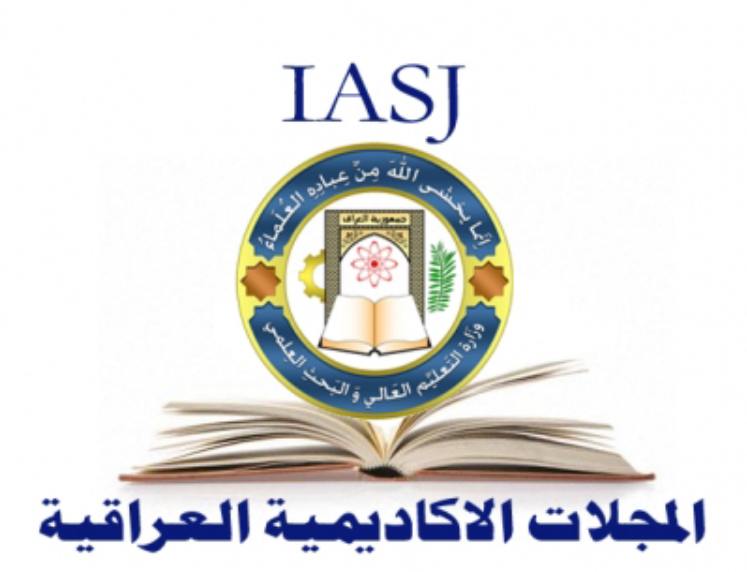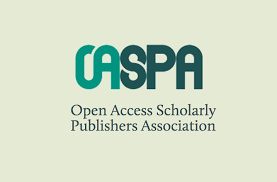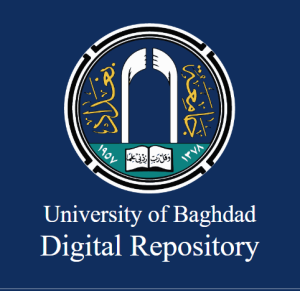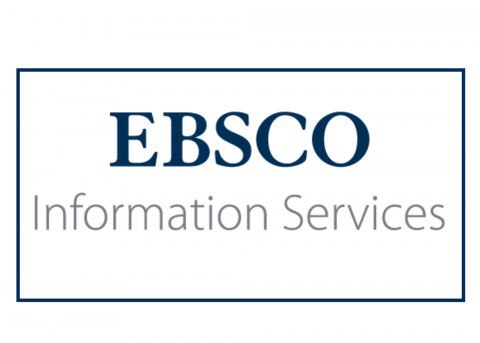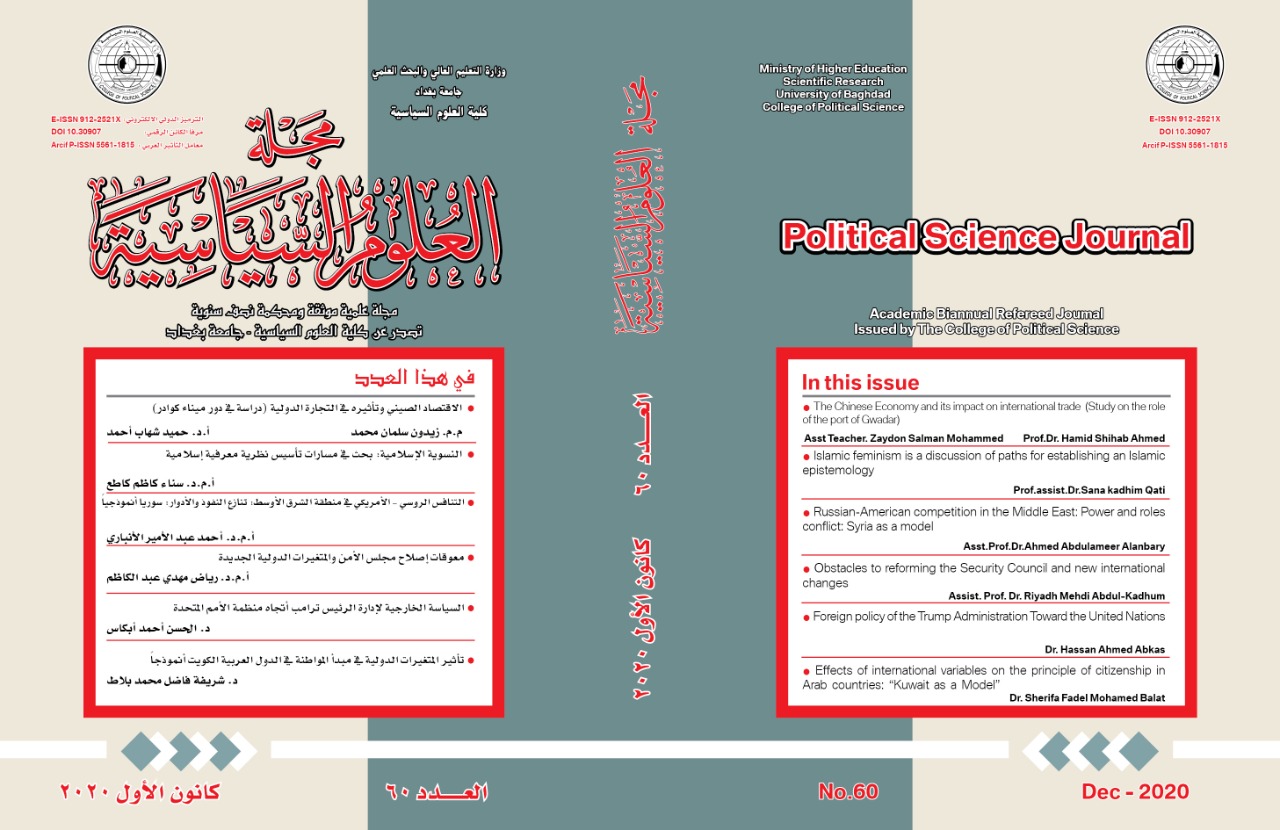تطور العلاقات بين الكويت والاتحاد السوفييتي (1961-1991)
DOI:
https://doi.org/10.30907/jj.v0i59.462الكلمات المفتاحية:
الكويت، الاتحاد السوفييتي، العراق، الحرب العراقية الإيرانية، السياسة الخارجيةالملخص
يهدف هذا البحث إلى دراسة العلاقات بين دولة الكويت والاتحاد السوفييتي السابق خلال الفترة الزمنية (1961-1991)، من خلال البحث في العوامل التي دفعت الكويت إلى إبرام علاقات دبلوماسية مع موسكو في عام 1963، والبحث في تأثير المتغيرات المحلية والإقليمية والدولية في تطور العلاقات بين الكويت والاتحاد السوفييتي خلال هذه الفترة الزمنية. واعتمد البحث على المنهجين التحليلي والتاريخي في دراسة هذا الموضوع. وتوصل البحث إلى نتائج رئيسية أهمها: أن قرار الكويت إقامة علاقات دبلوماسية مع الاتحاد السوفييتي السابق في عام 1963 كان مدفوعاً بعوامل داخلية وإقليمية ودولية، أهمها المحدد التاريخي والجغرافي وطبيعة تركيبة النظام الدولي وأزمة التهديد العراقي فيما عُرِف ب "أزمة قاسم" (1961-1963)، والتي انتقلت إلى البعد الدولي من خلال استخدام الاتحاد السوفييتي لسلطة النقض "الفيتو" في مجلس الأمن الدولي ضد اقتراح قبول الكويت في منظمة الأمم المتحدة. كما كان للجماعات السياسية في الكويت مثل الجماعات الشيوعية والقومية تأثير، وإن كان محدوداً، في قرار الكويت إقامة علاقات متوازنة بين الشرق والغرب خلال فترة الحرب الباردة. ومن ناحيةٍ أخرى، فقد توصل البحث إلى أن هناك متغيرات وأحداث خارجية ساهمت في تطور العلاقات الكويتية السوفييتية خلال الفترة 1961-1991 أهمها "أزمة قاسم" (1961-1963)، والحرب العراقية الإيرانية (1980-1988)، والاحتلال العراقي للكويت (1990-1991). وتوصل البحث إلى نتيجة مفادها بأن العلاقات بين الكويت والاتحاد السوفييتي كانت في الغالب متأثرة بعاملين إقليمي ودولي، أحدهما "اللاعب أو المحدد العراقي"، وطبيعة علاقة التحالف الاستراتيجي بين الاتحاد السوفييتي والعراق خلال فترة الحرب الباردة. والآخر، هو "المحدد الأمريكي" وطبيعة النفوذ الأمريكي في منطقة الخليج العربي.
المراجع
ii. الابراهيم، حسن. (1982). الدول الصغيرة والنظام الدولي: الكويت والخليج (ط. 1). بيروت: مؤسسة الأبحاث العربية.
iii. أبوكوف، بوغوس (2016). الكويت بوابة السوفييت إلى الخليج. تم استرجاعها في تاريخ 10 يناير، 2020 من https://www.youtube.com/watch?v=LttNlgTzMpk&list=PL-
iv. أسيري، عبد الرضا (2017). سياسة الكويت الخارجية (1991- 2017) إنجازات الماضي..تحديات الحاضر.. وآفاق المستقبل. الكويت: مكتبة الكويت الوطنية.
v. الأمارة، لمى (2009). الاستراتيجية الروسية بعد الحرب الباردة وانعكاساتها على المنطقة العربية (ط. 1). بيروت: مركز دراسات الوحدة العربية.
vi. بشارة، عبد الله يعقوب (2019). حروب الكويت الدبلوماسية (1961-1963) (ط. 2). الكويت: مركز البحوث والدراسات الكويتية.
vii. بونداريفسكي، غ. (1994). الكويت وعلاقاتها الدولية خلال القرن التاسع عشر وأوائل القرن العشرين (ماهر سلامة، مترجم). الكويت: مركز البحوث والدراسات الكويتية.
viii. بيلونوغوف، أ (2020). أسرار وكواليس الخارجية الروسية في غزو الكويت (جمال حسين علي، مترجم). الكويت: منشورات ذات السلاسل.
ix. تاريخ العلاقات الروسية-الكويتية. (2015). تم استرجاعها بتاريخ 20 ديسمبر، 2019 من www.arabic.rt./news/799849
x. حجلاوي، نور الدين بن الحبيب. (2010). تأثير الفكر الناصري على الخليج العربي (ط. 2). بيروت: مركز دراسات الوحدة العربية.
xi. الحمداني، رعد (2009). احتلال الكويت وحرب الخليج. تم استرجاعها في 10 يناير، 2020 من https://www.youtube.com/watch?v=GHnqIkKl3T4
xii. خريبط، علي. (1983، 20 يونيو). نظرة تحليلية لسياسة الكويت الخارجية، مجلة صوت الخليج، العدد 1042.
xiii. الخطيب، أحمد (2007). الكويت من الإمارة إلى الدولة. ذكريات العمل الوطني والقومي (ط. 1). المغرب: المركز الثقافي العربي.
xiv. زيدان، ناصر. (2013). دور روسيا في الشرق الأوسط وشمال أفريقيا من بطرس الأكبر حتى فلاديمير بوتين (ط. 2). بيروت: الدار العربية للعلوم ناشرون.
xv. سليم، محمد السيد (2011). نحو آفاق جديدة للعلاقات بين الكويت والقطب الروسي الصاعد. النهار، 1339.
xvi. سليم، محمد السيد (2013). تحليل السياسة الخارجية (ط. 3). مصر: مكتبة النهضة المصرية.
xvii. سليم، محمد السيد. (2010، 1 أكتوبر). الكويت وسياسة الاتجاه شرقاً. النهار، 1060.
xviii. الشاهين، سليمان ماجد. (2001). الدبلوماسية الكويتية بين المحنة والمهنة (ط. 1). الكويت: مكتبة الكويت الوطنية.
xix. الشمري، خلف. (2010). المستودع والمستحضر في أسباب النزاع بين مبارك الصباح ويوسف آل إبراهيم 1896-1906. الأردن: دار السلاطين للطباعة والنشر.
xx. الشمري، سعود مشعل. (2008). التوجه القومي في الكويت (ط. 1). الكويت: مكتبة الكويت الوطنية.
xxi. الشيباني، محمد إبراهيم (2002، 15 فبراير). وثائق وصور كثيرة في الأرشيف الروسي حول الكويت. القبس.
xxii. صباح الأحمد يدعو القوى العظمى إلى إحلال سلام عادل في المنطقة (1981، 28 فبراير). القبس. 3159، ص 3.
xxiii. صباح الأحمد: الأساطيل في بحرنا ليست للسياحة. (1983، 7 يناير). الأنباء، 2527. ص 8.
xxiv. صباح الأحمد: لا مصلحة للسوفييت في إغلاق مضيق هرمز. (1981). القبس.
xxv. العتيبي، منصور عياد. (2009). مجلس الأمن في مواجهة العدوان العراقي على دولة الكويت وتداعياته (1990- 2008) (ط. 1). الكويت: مركز البحوث والدراسات الكويتية.
xxvi. العجمي، ظافر. (2011). أمن الخليج العربي. تطوره وإشكالياته من منظور العلاقات الإقليمية والدولية (ط. 2). بيروت: مركز دراسات الوحدة العربية.
xxvii. عليان، حمزة و الحمود، مها (2015، 8 نوفمبر). العلاقات الكويتية الروسية: ثبات تفاهم مصالح متبادلة. القبس.
xxviii. الغصين، طلعت. (1981). خمس جنسيات والوطن واحد: من مذكرات طلعت يعقوب الغصين. الكويت: مطبعة حكومة الكويت.
xxix. الفيل، محمد رشيد. (1974). الأهمية الاستراتيجية لمنطقة الخليج العربي، في "الخليج العربي في مواجهة التحديات"، محاضرات الموسمين الثقافيين السابع والثامن 1974-1975، مطبوعات رابطة الاجتماعيين، الكويت: مؤسسة الوحدة للنشر والتوزيع، 31-79.
xxx. الكويت.. أميراً وشعباً وجيشاً تحتفل بالعيد الوطني العشرين.(1981، 26 فبراير). القبس، 3158.
xxxi. المديرس، فلاح. (2003). التوجهات الماركسية الكويتية (ط. 1). الكويت: دار قرطاس.
xxxii. ميلكوميان، ي. (2010). دراسات في تاريخ الكويت الحديث والمعاصر (ماهر سلامة، مترجم). الكويت: مركز البحوث والدراسات الكويتية.
xxxiii. النجار، غانم. (2000). مدخل للتطور السياسي في الكويت (ط. 3). الكويت: دار قرطاس للنشر.
xxxiv. الهاجري، عبد الله (2014، يناير). الاتحاد السوفييتي والأزمة الكويتية العراقية 1961: رؤية كويتية. مجلة المؤرخ المصري.
xxxv. الهاجري، عبد الله. (2017). تاريخ الكويت. الإمارة والدولة (ط. 1). الكويت.
List of Sources and reference:
i. Atlas, T (1987, May 25). Soviets’ Growing Role in Gulf has U.S Worried. Retrieved January 2, 2020 from https://www.chicagotribune.com/news/ct-xpm-1987-05-25-8702080330-story.html
ii. Cigar, N (1989). The Soviet Navy in the Persian Gulf: Naval Diplomacy in a Combat Zone. Naval War College Review, 42 (2), 56-88.
iii. Clark, Richard. A. (2012). Against All Enemies. Free Press.
iv. Dougherty, J. (2001). The Gulf War: Moscow’s role. Retrieved January 2, 2020 from https://edition.cnn.com/2001/WORLD/europe/01/16/russia.iraq/index.html
v. Fukuyama, Francis. (1980).The Soviet Union and Iraq since 1986. Prepared for the United States Air Force. RAND.
vi. Keller, B (1990, August 8). The Iraqi Invasion; US and the Soviets as Allies: It’s first time since 1945. Retrieved January 4, 2020 from https://www.nytimes.com/1990/08/08/world/the-iraqi-invasion-us-and-the-soviets-as-allies-it-s-the-first-time-since-1945.html
vii. Lenczowski, G (1982). The Soviet Union and the Persian Gulf: an encircling strategy. International Journal: Canada’s Journal of Global Policy Analysis, 37 (2).
viii. Melkumyan, Elena. (2015). A Political History of Relations between Russia and the Gulf States. Arab Center for Research & Policy Studies.
ix. Soviet Faults Raids on Kuwait. (1987, 25 October). The New York Times, Section 1, Page 8.
x. Yodfat, A. Y (1980). The Soviet Union and the Arabian Peninsula. Routledge Library Editions: Iran, 33.
References
i. Al-Ibrahim, Hassan. (1980). Kuwait .. A Political Study (3rd Edition). Kuwait: Dar Al Uloom Foundation.
ii. Al-Ibrahim, Hassan. (1982). Small states and the international system: Kuwait and the Gulf (1st edition). Beirut: Arab Research Foundation.
iii. Abukov, Bogos (2016). Kuwait soviet gateway to the gulf. Retrieved on January 10, 2020 from https://www.youtube.com/watch?v=LttNlgTzMpk&list=PL-
iv. Asiri, Abdel Reda (2017). Kuwait Foreign Policy (1991-2017) past achievements..the challenges of the present .. and future prospects. Kuwait: Kuwait National Library.
v. The Principality, Lama (2009). Russian strategy after the Cold War and its implications for the Arab region (1st edition). Beirut: Center for Arab Unity Studies.
vi. Bechara, Abdullah Yaqoub (2019). The Diplomatic Wars of Kuwait (1961-1963) (2nd edition). Kuwait: Kuwaiti Research and Studies Center.
vii. Bondarevsky, G. (1994). Kuwait and its international relations during the nineteenth and early twentieth century (Maher Salama, translator). Kuwait: Kuwaiti Research and Studies Center.
viii. Pelonugov, A. (2020). The secrets and scenes of the Russian Foreign Ministry in the invasion of Kuwait (Jamal Hussein Ali, translator). Kuwait: Al-Silasil Publications.
ix. History of Russian-Kuwaiti relations. (2015). Retrieved on December 20, 2019 from www.arabic.rt./news/799849
x. Hajjalawi, Noureddine bin Habib. (2010). The Impact of Nazareth Thought on the Persian Gulf (2nd edition). Beirut: Center for Arab Unity Studies.
xi. Al-Hamdani, Raad (2009). The occupation of Kuwait and the Gulf War. Retrieved January 10, 2020 from https://www.youtube.com/watch?v=GHnqIkKl3T4
xii. Khuraibet, Ali. (1983, June 20). An analytical view of Kuwait's foreign policy, Sawt Al-Khaleej, No. 1042.
xiii. Al-Khatib, Ahmed (2007). Kuwait from the emirate to the state. Memories of national and national action (1st edition). Morocco: Arab Cultural Center.
xiv. Zidan, Nasser. (2013). Russia’s Role in the Middle East and North Africa from Peter the Great to Vladimir Putin (2nd ed.). Beirut: Arab Science House Publishers.
xv. Salim, Mohamed El-Sayed (2011). Towards new horizons for relations between Kuwait and the rising Russian pole. Al-Nahar, 1339.
xvi. Salim, Mohamed El-Sayed (2013). Foreign Policy Analysis (3rd edition). Egypt: Egyptian Renaissance Library.
xvii. Selim, Mohamed El-Sayed. (2010, October 1). Kuwait and the eastward policy. Daytime, 1060.
xviii. Al-Shaheen, Suleiman Majid. (2001). Kuwaiti diplomacy between the ordeal and the profession (1st edition). Kuwait: Kuwait National Library.
xix. Al-Shammari, Khalaf. (2010). The warehouse and the preparation in the causes of the dispute between Mubarak Al-Sabah and Youssef Al-Ibrahim, 1896-1906. Jordan: Dar Al-Sulteen for Printing and Publishing.
xx. Al-Shammari, Saud Mashal. (2008). National orientation in Kuwait (1st edition). Kuwait: Kuwait National Library.
xxi. Al-Shaibani, Mohamed Ibrahim (2002, February 15). Many documents and pictures in the Russian Archive about Kuwait. Al Qabas.
xxii. Sabah Al-Ahmad calls on the superpowers to establish a just peace in the region (1981, February 28). Al Qabas. 3159, p. 3.
xxiii. Sabah Al-Ahmad: Fleets in our sea are not for tourism. (1983, January 7). News, 2527. p. 8.
xxiv. Sabah Al-Ahmad: The Soviets have no interest in closing the Strait of Hormuz. (1981). Al Qabas.
xxv. Al-Otaibi, Mansour Ayyad. (2009). The Security Council in the face of the Iraqi aggression against the State of Kuwait and its repercussions (1990-2008) (1st edition). Kuwait: Kuwaiti Research and Studies Center.
xxvi. Al-Ajmi, Zafir. (2011). Security of the Arabian Gulf. Its development and its problems from the perspective of regional and international relations (2nd edition). Beirut: Center for Arab Unity Studies.
xxvii. Alyan, Hamza and Al-Hamoud, Maha (2015, November 8). Kuwaiti-Russian relations: steadfast understanding of mutual interests. Al Qabas.
xxviii. Al-Ghussein, Talaat. (1981). Five nationalities and one homeland: from Talaat Yaqoub Al-Ghussein’s memoirs. Kuwait: Kuwait Government Press.
xxix. The Elephant, Muhammad Rashid. (1974). The strategic importance of the Arab Gulf region, in “The Arabian Gulf in Facing Challenges”, Lectures of the Seventh and Eighth Cultural Seasons 1974-1975, Publications of the Association of Socialists, Kuwait: Al Wahda Foundation for Publishing and Distribution, 31-79.
xxx. Kuwait: Emir, people and army celebrate the twentieth national day (1981, 26 February). Al-Qabas, 3158.
xxxi. The teacher, a farmer. (2003). Kuwaiti Marxist Trends (i. 1). Kuwait: House of Cartas.
xxxii. Melcomian, J. (2010). Studies in modern and contemporary history of Kuwait (Maher Salama, translator). Kuwait: Kuwaiti Research and Studies Center.
xxxiii. Al-Najjar, Ghanem. (2000). An Introduction to Political Development in Kuwait (3rd Fl.). Kuwait: Qurtas Publishing House.
xxxiv. Al-Hajri, Abdullah (2014, January). The Soviet Union and the Kuwaiti-Iraqi crisis 1961: A Kuwaiti vision. The Egyptian Historian Magazine.
xxxv. Al-Hajri, Abdullah. (2017). History of Kuwait. The emirate and the state (1st edition). Kuwait.





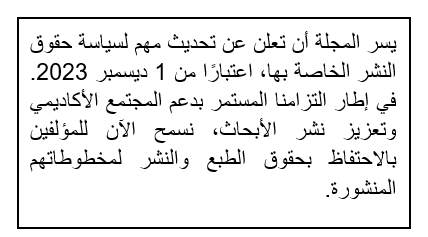
 ©️ 2023 The Author(s). Published by College of Political Science, University of Baghdad. This is an Open Access article distributed under the terms of the
©️ 2023 The Author(s). Published by College of Political Science, University of Baghdad. This is an Open Access article distributed under the terms of the 
